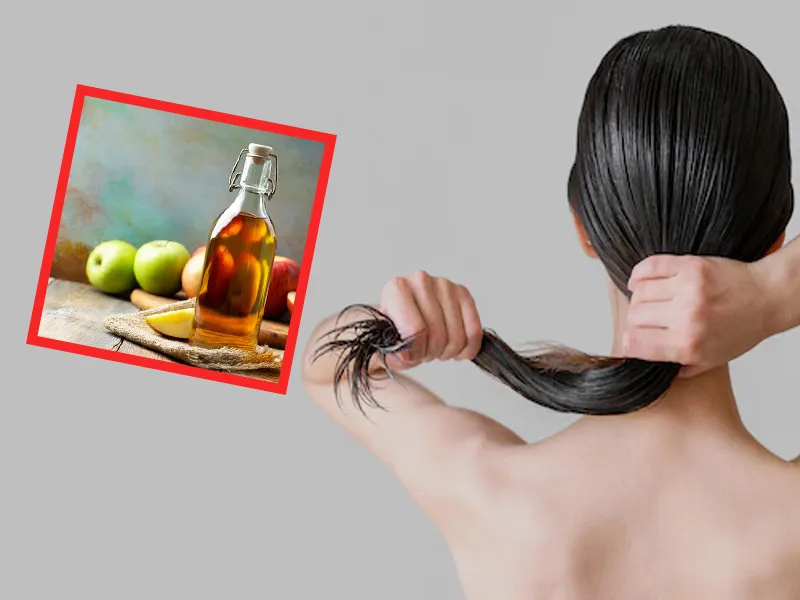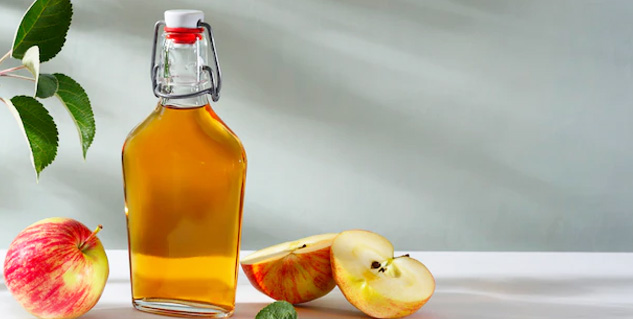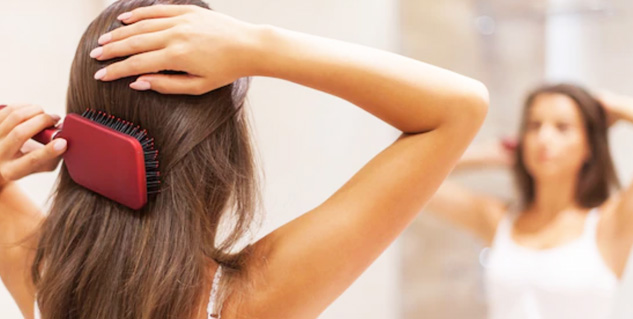
Apple Cider Vinegar (ACV) has long been praised as a multitasking beauty remedy, from aiding digestion to enhancing skin glow. But when it comes to hair, the question still remains: Is apple cider vinegar rinse truly safe and beneficial for your scalp and strands, is a placebo or can harm the hair?
Table of Content:-
We spoke to Dr Kriti Lohia, CEO & Consultant Dermatologist, MBBS, DDVL, DABRM, Aesthetics Redefined by Cocoona Clinic - Gurgaon, to understand the truth behind this viral beauty trend.
What Does Apple Cider Vinegar Do for Hair?
Apple cider vinegar is rich in acetic acid, known for its antibacterial and antifungal properties. It can help remove product buildup, balance scalp pH, and add shine to dull hair. “Our scalp’s natural pH lies between 4.5 to 5.5, and most commercial shampoos are alkaline in nature. Using a diluted apple cider vinegar rinse can help restore this balance, leading to a cleaner and healthier scalp environment,” explained Dr Kriti Lohia. When used correctly, ACV can:
Also Read: Expert Shares The Best Alternative Of Salt For Blood Pressure Patients

- Clarify hair by removing residue from styling products.
- Reduce dandruff caused by fungal overgrowth.
- Add natural shine and smoothness by sealing the hair cuticle.
- Improve scalp circulation and overall hair texture.
Right Way to Use ACV Rinse
While apple cider vinegar offers several benefits, moderation and proper dilution are key. Dr Lohia recommended never applying it directly to the scalp in its concentrated form. “Always dilute one to two tablespoons of ACV in a cup of water before using it as a rinse,” she advised. Here’s a simple method:
- After shampooing, pour the diluted ACV mixture over your scalp and hair.
- Massage gently for one to two minutes.
- Let it sit for another minute, then rinse thoroughly with cool water.
- Follow up with a light conditioner if your hair feels dry.
Limit usage to once a week for oily or dandruff-prone scalps and once every two weeks for normal to dry hair. Overuse can lead to dryness, irritation, or colour fading, especially in chemically treated hair.
Also Read: Every Family in Punjab Gets 300 Units of Free Electricity, Uninterrupted Power Supply for Farmers

Potential Risks and Who Should Avoid Them
Despite its natural appeal, ACV isn’t suitable for everyone. “People with sensitive scalps, eczema, psoriasis, or recent hair colouring should avoid frequent ACV rinses,” warned Dr Kriti Lohia. “The acid content can cause stinging, redness, and dryness if overused or applied incorrectly.”
Additionally, those with fine or brittle hair may notice increased frizz or breakage if vinegar strips away essential natural oils. Dr Lohia adds that “the safety and results depend heavily on concentration and frequency. Just because something is natural doesn’t mean it’s harmless.”
If you’re trying ACV for the first time, she suggests doing a patch test or consulting your dermatologist to assess compatibility with your scalp and hair type.
Expert Verdict
According to Dr Lohia, “Apple cider vinegar can be a beneficial scalp rinse when used judiciously and properly diluted. It helps detoxify the scalp, adds shine, and reduces mild dandruff. However, overuse or incorrect application can do more harm than good.”
So, while ACV can indeed promote scalp health and cleaner hair, it should complement, not replace, your regular hair care routine. Always ensure that the rest of your regimen includes gentle cleansing, adequate hydration, and sun protection for your strands.
Bottomline
Apple cider vinegar can enhance scalp health and shine if used sparingly and correctly. However, overuse or incorrect dilution can damage the hair cuticle and irritate the scalp. When in doubt, consult a dermatologist to tailor its use to your specific needs.
Also watch this video
FAQ
1. Can I use apple cider vinegar on colour-treated hair?
Not regularly. ACV’s acidity can strip colour and cause fading. Always consult your stylist or dermatologist before use.2. How often should I use ACV rinse for dandruff?
Once a week is sufficient. Overuse may dry out the scalp or irritate.3. Should I use conditioner after an ACV rinse?
Yes. A light conditioner helps restore moisture and maintain smoothness after the acidic rinse.
How we keep this article up to date:
We work with experts and keep a close eye on the latest in health and wellness. Whenever there is a new research or helpful information, we update our articles with accurate and useful advice.
Current Version
Oct 22, 2025 08:30 IST
Published By : Tanya Srivastava